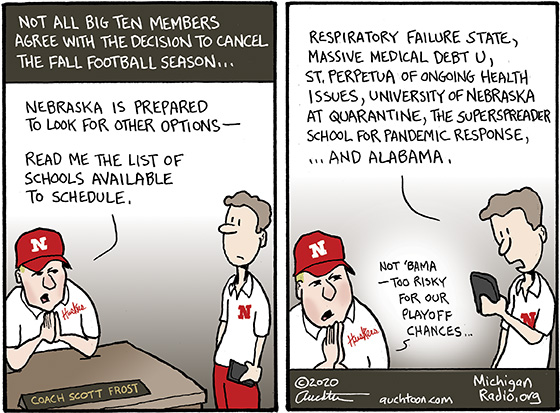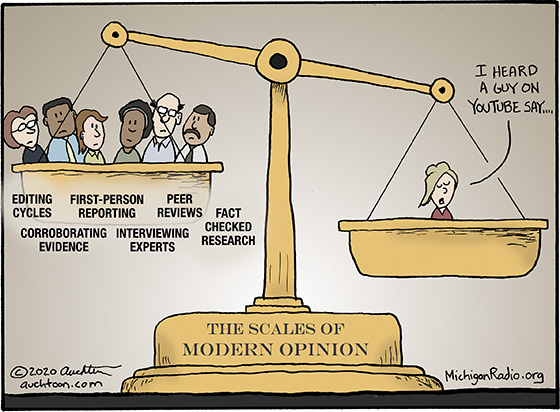How Do You Feel About the President’s Lies?

Ugh! It happened AGAIN! These minute-by-minute news cycles are killing me. I had a complete cartoon all mapped out:
- Frame 1 – Trump telling a bedtime story to a middle-aged Michigan guy, “…and then all the high-paying manufacturing jobs came back and the Michiganders lived happy ever after.” The guy smiles and says, “What a great story. It’s obviously not true, but I love hearing it.”
- Frame 2 – he turns to the other side of the bed and says, “Okay Uncle Joe, now you tell it.” And Biden starts in with “Once upon a time…”
We Michiganders are (for the lack of a less politically charged name) suckers for a “I will make manufacturing like it used to be” story. You’d think we’d learn.
But as I went to draw it, the news broke from the new Bob Woodward book about President Trump knowing full well about the deadly seriousness of the coronavirus, yet purposely downplaying the risks, even rage tweeting at one point to “LIBERATE MICHIGAN!” That sucked most of the oxygen out to the recent Biden and Trump visits to Michigan to sell their plans for bringing back high-paying manufacturing jobs. But as with every Infrastructure Week this administration ever launched, the featured story quickly dissipated.
The craziest thing is, by the time you are reading this, the story (and taped recordings) of the President of United States willfully letting a deadly disease spread could become a distant memory from many news cycles ago.










